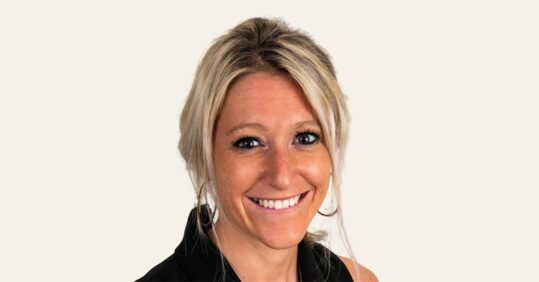How nurses can help people with eating disorders during Covid-19

Over the last few months, lockdown has been nothing that we have ever experienced before and many of us have seen our world change dramatically. Overnight we went from living life as we knew it, to being in our homes pretty much 24/7. Most people have faced difficulties during this time and been left with uncertainty.
We have seen over the last few months an increase in the number of people struggling with their mental health and for many that struggle is with eating disorders. For many who were having in-patient treatment when lockdown started, they had to go back to the community; and whilst I am a real supporter of community care with eating disorders, for some this came too soon. For some with eating disorders, they were being thrown in at the deep end.
Related Article: Tell us what practice nursing means to you and potentially win £1,000
For those who weren’t in formal care, people in recovery (even years down the line), or those at the start of their journey what followed the lockdown announcements was months of turmoil. From gyms closing to stockpiling to the recent messaging around ’waging a war on obesity’ it really has created the perfect storm for people with eating disorders.
Reflecting over my last few months, and being eleven years out of hospital for anorexia, I would be lying if I said it had been 100% plain sailing. Waking up to my gym closing, and not being able to find bread that worked for me in my recovery was scary. The cracks certainly began to show. These cracks don’t mean I am weak. What it means is that I need to get back on top of it. I need to up my game plan and stay focussed on recovery. For me this was doable. I went back to routine, did my therapy remotely, and tried really hard to focus on my motivations for staying well. For so many people this didn’t feel like an option. Recovery felt so much harder and it is understandable. There are people at different stages in their journey.
Everyone in society has a duty of care to those around them and whilst we cannot ‘police’ what everyone is doing, it is about creating safe places where people are able to get the right support and where people feel able to be themselves. There is still a lot of shame and stigma wrapped up in eating disorders and an added complication for many is that they feel guilty and undeserving of support. Eating disorders are extremely competitive illnesses. You compete with everyone around you and with other people with eating disorders. When you are unable to access support and services this competition gets much more intense.
Below are some suggestions for what nurses can do on a day-to-day basis to support people with eating disorders (particularly with services stretched as they are right now):
Related Article: MPs vote to legalise assisted dying in England and Wales
- Give someone with an eating disorder a call and ensure they have the support that they need. Some patients will lie and pretend they are okay, but it is important that they are offered that line of communication. You might be the only person to do that, and allowing that person to feel heard and validated will help them get into a better space for their recovery.
- Eating disorders thrive off isolation; encouraging people to eat their meals over Skype or FaceTime might help reduce that loneliness and the feelings of guilt. As well as having people they can speak to, make sure that they have thought of distractions and activities on either side of meals to help manage their feelings around food.
- We need to be broadening up this conversation further. We need to be okay with talking about eating disorders, and we need to be okay with being direct if we are worried about individuals.
- It is essential that we move away from a one-size-fits-all model and instead focus on an individuals’ specific needs when we are talking about health, instead of scaring people into exercising or not eating.
- A simple way to do that is to get them to focus on their motivations for getting well. For me this involved making a list of all the things I want to do when lockdown ends, from travelling to work projects.
For me, a big motivator during this time is knowing that I cannot let myself get unwell again because if I do I can’t campaign. This hasn’t always been easy and, trust me, there have been times when I have felt so frustrated, angry and guilty. Having these hard moments in recovery is normal, particularly when we are living through a pandemic. It is more about how we manage ourselves in these periods.
A huge part of the work that I do is on a campaign called #DumpTheScales. This is all about making sure that people get the right support in a timely manner regardless of what their weight is.
There are over 1 million people with eating disorders in the UK but there are many who have not yet been diagnosed. Nurses may well have contact with these undiagnosed individuals.
Related Article: Super-regulator finds ‘weaknesses’ across NMC’s regulatory functions
Nurses can help tackle stigma by helping people with eating disorders to feel heard and to remind patients and colleagues that eating disorders come in all shapes and sizes.
Remember – a small conversation with you could change a person’s life.

See how our symptom tool can help you make better sense of patient presentations
Click here to search a symptom




